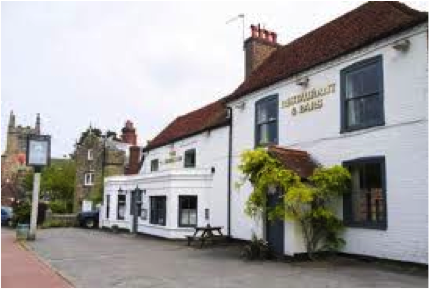Sloe Gin World Championship 2023
Due to circumstances beyond our control, there will not a Sloe Gin Championship in 2023. We are hoping to return in 2024.
The competition is a social event for our village and the entrants, some of whom travel from Europe so we really hope that we will return in 2024.
However this is not all bad news, if you can refrain from drinking all your Sloe Gin, the extra time it has to mature will only make your gin better. So we look forward to welcoming you all in 2024 and tasting those extra-matured gins.
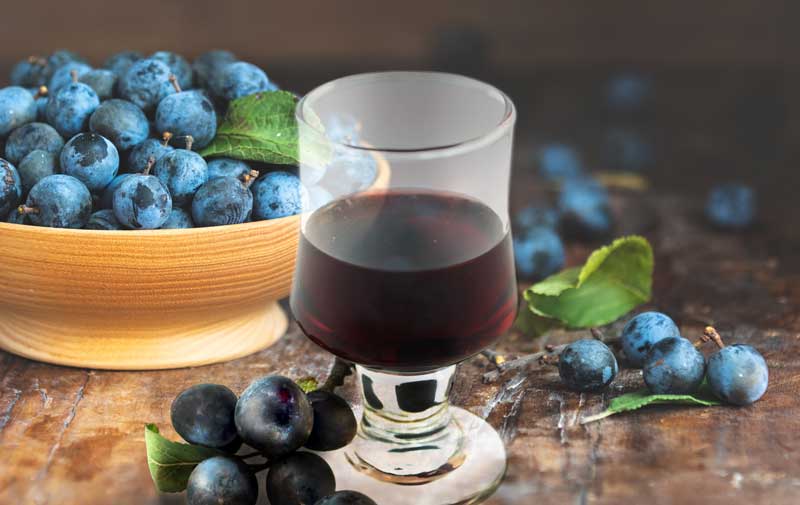
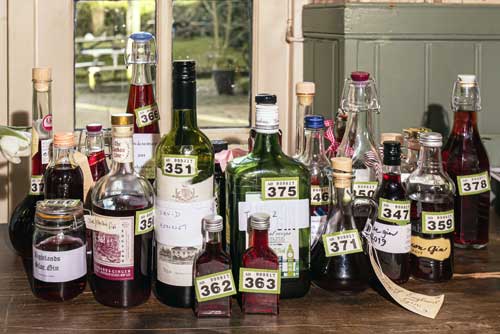
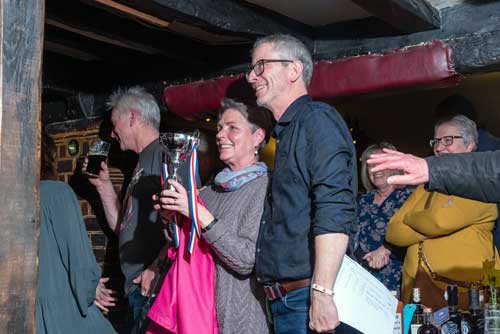
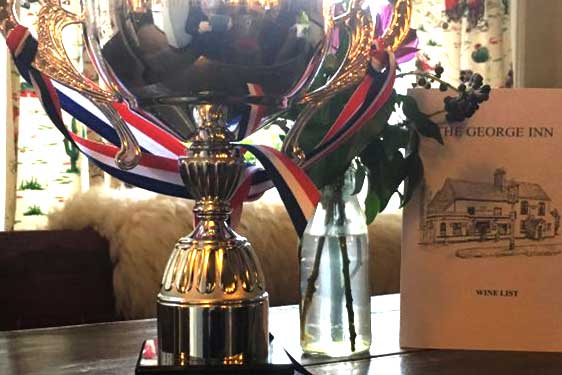
The 11th ‘Sloe Gin World Championships’, held at The George Inn in Frant on the Kent/Sussex border near Tunbridge Wells drew more 30 entries – a record number. The event, raised £1,050.00 with proceeds being donated to The UK Sepsis Trust.
This year’s winning Homemade entry came from France, using sloes harvested by Andy McKee from the bushes at the base of Mont St Michel in Normandy, when she lived in Honfleur. McKee has since moved to Rusthall near Tunbridge Wells. Pub regulars Michael and Jill Westwood came second. Locals, Carol Crook and Barry Scales came third.
The Boutique Distillery category for small batch producers was won by Edinburgh-based Demi John. Anno Distillers of Tonbridge, won the silver medal and Mother’s Ruin from East London, the bronze.
This year’s Commercial winner was Gordon’s. Sipsmith was named runner up and Plymouth took bronze,
The highest ranked International Commercial entry was from Rosshaid Distillery in Austria. The furthest amateur entry was submitted by an American sloe gin connoisseur.
One of the judges, co-founder of the Gin Box Shop in Tunbridge Wells, Alistair Harlow, said: “As a local gin retailer with a shop and online store in Tunbridge Wells, we have tried and tested our way through a few sloe gins in our time, but we were absolutely staggered at the quantity and quality of World Sloe Gin Championships entries.”
Event co-organiser, Lisa de Garston, who runs Moondown said: “In previous years it was noticeable that although they were judged separately, homemade concoctions generally scored better than commercial gins – possibly because the makers have had longer to refine their recipes. This year the top scoring commercial liqueurs surpassed the amateur entries for the first time.”
All proceeds were donated to The UK Sepsis Trust. The charity works to highlight the dangers of sepsis, which kills over 50,000 people in the UK each year.
Local parent, Fiona Mason writes:
“We first came across The UK Sepsis Trust following the death of our youngest son , Tim, on 16 March 2018. Tim died in Pembury Hospital as a result of Meningococcal Septicaemia. He became ill in the early hours of Friday 16 March and was admitted to A&E, he was discharged some 4 hours later since the hospital had not only failed to identify Sepsis ( many of the disease markers were present at admission), but had failed to follow its own protocols regarding Sepsis. On his second admission to the hospital, that same afternoon, the ICU doctors, despite their herculean efforts, were unable to save Tim and he died 21 hours and 15 minutes after first symptoms.
The hospital admitted responsibility for Tim’s death and the inquest exposed even more of the failing processes within the hospital. It became evident that these failing were not isolated to our hospital and as we learned about Sepsis (of which we knew nothing) it became further evident that this was a disease that crossed the population irrespective of age, gender or economic status. The evidence we found was shocking:
Each year Sepsis kills more people than breast, bowel and prostate cancer combined. Each year Sepsis kills 52,000 people– that is 140+ every day. There are 250,000 cases of Sepsis every year.
We needed to find a way of not just changing our hospital, but supporting change in the whole country, both in the medical profession and the general public and we believe we have found the way in our support of The UK Sepsis Trust.”
